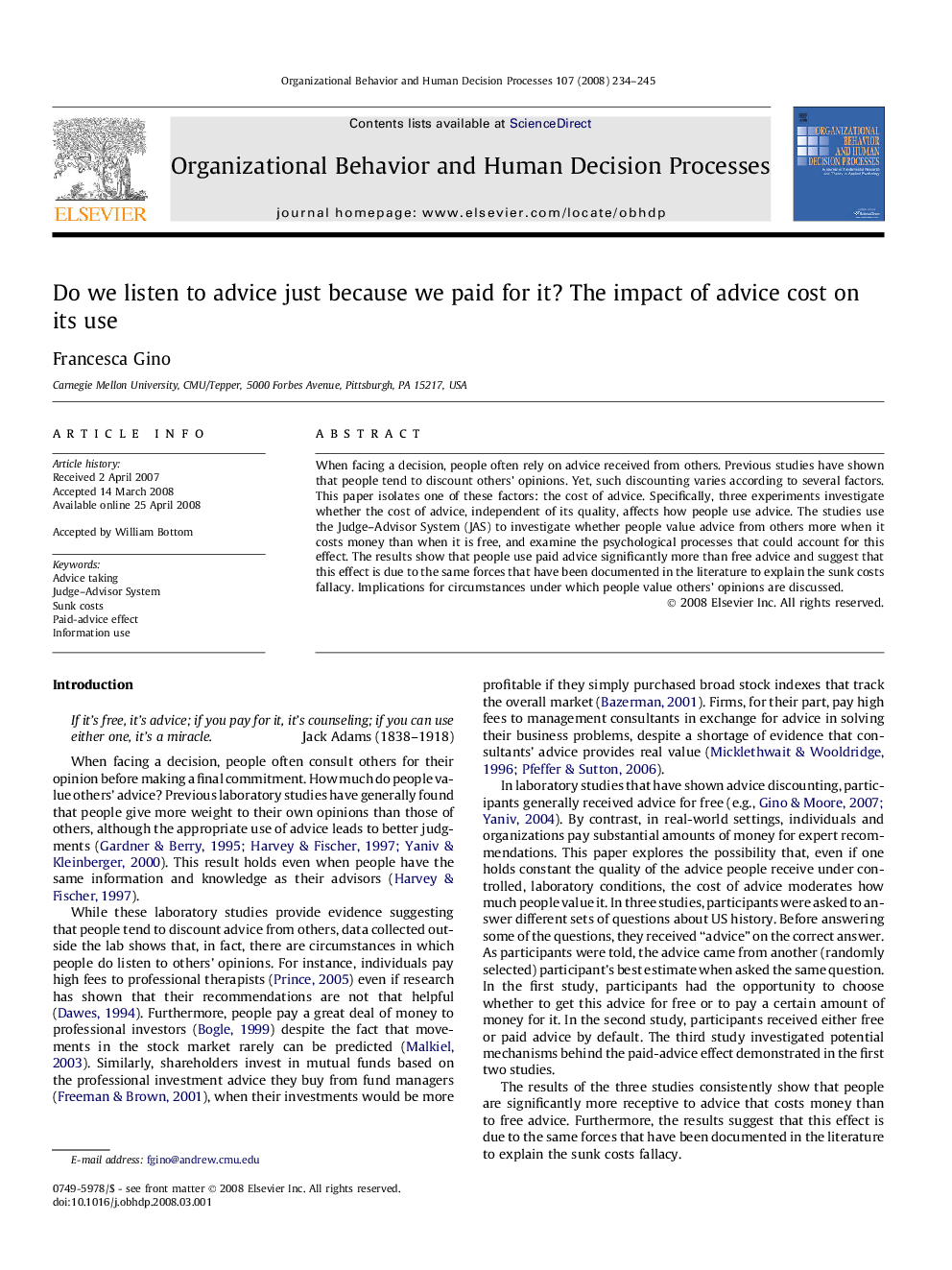| Article ID | Journal | Published Year | Pages | File Type |
|---|---|---|---|---|
| 888919 | Organizational Behavior and Human Decision Processes | 2008 | 12 Pages |
When facing a decision, people often rely on advice received from others. Previous studies have shown that people tend to discount others’ opinions. Yet, such discounting varies according to several factors. This paper isolates one of these factors: the cost of advice. Specifically, three experiments investigate whether the cost of advice, independent of its quality, affects how people use advice. The studies use the Judge–Advisor System (JAS) to investigate whether people value advice from others more when it costs money than when it is free, and examine the psychological processes that could account for this effect. The results show that people use paid advice significantly more than free advice and suggest that this effect is due to the same forces that have been documented in the literature to explain the sunk costs fallacy. Implications for circumstances under which people value others’ opinions are discussed.
